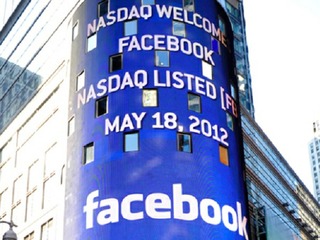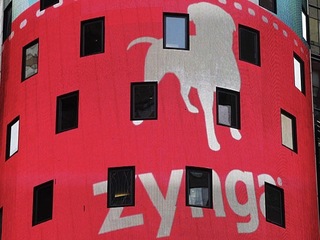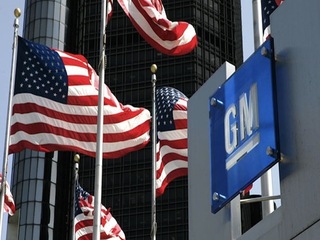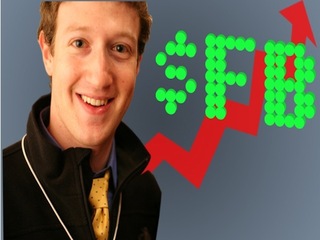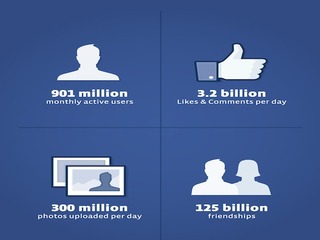The FDA outlines draft guidance on AI for medical devices
The agency also published draft guidance on the use of AI in drug development
Read more...

What little momentum Facebook felt on Nasdaq on Friday (NASDAQ:FB) was washed away over the weekend, because the company's stock plummeted more than 11% in the first few minutes of trading today, breaking below its $38 IPO price and hovered in the $34 range.
It looks as though the stock that was advertised as unsinkable is just as vulnerable as the Titanic.
Investors and technology industry watchers are closely tracking the Menlo Park, Calif.-based company’s shares because of how highly-anticipated this IPO was. With 461.2 million shares for sale in order to raise a hair more than $16 billion, Facebook definatley made its big splash on Wall Street -- but what water investors were excited about, dried up rather quickly.

Even the market debut for the social networking giant had some problems getting on the trading floor, since Nasdaq delayed the company trading for a half hour and issues with traders’ orders.
Nasdaq’s chief executive, Robert Greifeld, said he was “humbly embarrassed” by the technical missteps, brought on the record volume of trading that occurred in the moments when Facebook was ready to debut. The exchange has since announced that changes are in the works to adjust how it will handle initial public offerings in an effort to avoid problems in the future.
The stock closed Friday just 23 cents above where it priced Thursday night, only getting a 13% pop out of the gate, almost all of which was gone by the closing bell.
Analysts are pointing to the underwriters (led by Morgan Stanley), with a general consensus that the price range should not have been bumped up to $38 from the previously anticipated $34.
Sterne Agee analyst Arvind Bhatia said earlier this month that he expects the company's shares to increase to $46 over the next year.
Bhatia also referred to Facebook's Friday performance as "a little bit surprising and disappointing," but added, "At the same time, you could give kudos to the underwriters because they priced it pretty close to where it's trading."
Facebook wasn't alone, however, in feeling a drop Monday.
Other companies in the social networking space, extended the losses they saw on Friday, again, early on Monday.
Shares in Zynga, which dropped more than 10% overall on Friday, declined another 5% to $6.78 today.
Also Pandora, the internet radio service, lost 1.8% to $9.59 -- and Groupon, felt a 1.5% drop to $11.47 in the first 30 minutes of trading Monday.
(Image Source: sixhorizons.com)
The agency also published draft guidance on the use of AI in drug development
Read more...The biggest focus areas for AI investing are healthcare and biotech
Read more...It will complete and submit forms, and integrate with state benefit systems
Read more...Startup/Business
Joined Vator on
Pandora, the leading internet radio service, gives people music they love
anytime, anywhere, through a wide variety of connected devices: laptop and
desktop computers, smartphones, connected BluRay players, connected TVs,
etc. Personalized stations launch instantly with the input of a single “seed” –
a favorite artist, song or genre. The Music Genome Project®, a deeply
detailed, hand-built musical taxonomy, powers the personalization or
Pandora. Using this musicological “DNA” and constant listener feedback
Pandora crafts personalized stations from the more than 800,000 songs that
have been analyzed since the project began in January 2000.
More than 75 million people throughout the United States listen to
personalized radio stations for free on Pandora through their PCs, mobile
phones and devices such as the iPad, and connected in-house devices
ranging from TVs to set-top boxes to Blu-Ray players. Mobile technology has
been a significant factor in the growth and popularity of Pandora, starting
with the introduction of the Apple app store for the iPhone in the summer of
2008. Pandora instantly became one of the most top downloaded apps and
today, according to Nielsen, is one of the top five most popular apps across
all smartphone platforms.
Pandora is free, simple and, thanks to connectivity, available everywhere
consumers are – at the office, at home, in the car and all points in between.
In 2009 the Company announced that Pandora would be incorporated into
the dashboard in Ford cars via SYNC technology; GM has already followed in
announcing plans to integrate Pandora into its vehicles and Mercedes-Benz
introduced their Media Interface Plus device that works with the
free Pandora iPhone app to provide direct control of Pandora from in-dash
stereo controls. This was all great news for the millions of Pandora listeners
who had been plugging their smartphones into car dashboards to listen to
personalized stations while driving. More than 50 percent of radio listening
happens in the car, making it a crucial arena for Pandora.
Today tens of millions of people have a deeply personal connection with
Pandora based on the delight of personalized radio listening and discovery.
These highly engaged listeners reinforce the value Pandora provides to: 1)
musicians, who have found in Pandora a level playing field on which their
music has a greater chance of being played than ever before; 2) advertisers,
who benefit from the multi-platform reach of Pandora, as well as its best
practices in targeting consumers for specific campaigns; 3) the music
industry, which has found in Pandora a highly effective distribution channel;
and 4) automobile and consumer electronics device manufacturers, who have
noted that incorporating Pandora into their product makes it more valuable
to consumers.
Pandora continues to focus on its business in the United States. The radio
arena has never been hotter, thanks to technology that enables radio to be
personalized to the individual and more accessible than ever before. Right
now millions of people listen to Pandora in the United States and we hope
someday to bring Pandora to billions of people around the world.
Timeline:
• 2000 – Tim Westergren’s Music Genome Project begins.
• 2005 – Pandora launches on the web.
• 2008 – Pandora app becomes one of the most consistently downloaded
apps in the Apple store.
• 2009 – Ford announces Pandora will be incorporated into car
dashboard. Alpine and Pioneer begin selling aftermarket radios that
connect to consumers’ iPhones and puts the control and command of
Pandora into the car dashboard.
• 2010 – Pandora is present on more than 200 connected consumer
electronics devices ranging from smartphones to TVs to set-top boxes
to Blu-ray players and is able to stream visual, audio, and interactive
advertising to computers, smartphones, iPads, and in-home connected
devices.
Startup/Business
Joined Vator on
Zynga is the largest social gaming company with 8.5 million daily users and 45 million monthly users. Zynga’s games are available on Facebook, MySpace, Bebo, Hi5, Friendster, Yahoo! and the iPhone, and include Texas Hold’Em Poker, Mafia Wars, YoVille, Vampires, Street Racing, Scramble and Word Twist. The company is funded by Kleiner Perkins Caufield & Byers, IVP, Union Square Ventures, Foundry Group, Avalon Ventures, Pilot Group, Reid Hoffman and Peter Thiel. Zynga is headquartered at the Chip Factory in San Francisco. For more information, please visit www.zynga.com.
